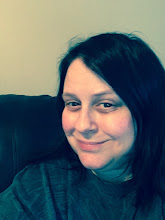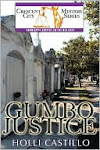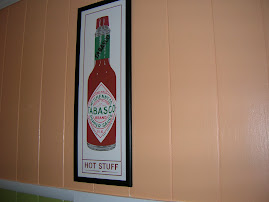 |
| Ron Corbin |
Today I am excited to welcome Ron Corbin, who explains his road to becoming a writer.
Path to Publication
by Ron Corbin
Army helicopter pilot, Vietnam vet, police officer and
helicopter pilot/instructor, school teacher and principal, counter-terrorism
trainer for nuclear facilities, security consultant and lecturer, security
director, guard service manager, crime prevention specialist, editor of a
police training magazine, police academy training manager…these are the “hats”
I have worn for the past five decades. On “face value,” it would appear that I
can’t hold a job…right? But actually, events of my life have opened many doors
of opportunity for new adventures.
Interspersed with all these careers, I started college
after completing my military career in 1969 as a 23-year-old. Being on a
college campus as a Vietnam War “baby-killer” in the early 70s was not a good
place to be. I worked my way through college without any student loans for the
next eighteen years. In other words, I went to college for a long time, not a
good time … no frat parties and such … and my wife saw to that.
As varied as my job professions have been, so are my
degrees. I have an AA in Physical Education, a BA in Child Development, an MS
in Elementary Education, and a PhD in Security Administration. I think that all
I am really qualified to do is to teach counter-terrorism to those little “terrorists”
running around pre- and elementary school.
I retired three years ago for the third time in my life,
only this time it is for good. I was a sworn officer for LAPD, a federal
security contractor, an honorary captain for New Orleans PD, and a civilian
employee for Las Vegas Metropolitan PD. Although I hope that I never need them,
maybe my ID cards from these agencies…these “get-out-of-jail-free” cards… might
come in handy someday.
After working forty-seven years, my immediate goal upon retiring
was to not drive my wife crazy and to keep from getting a divorce. Which this
almost happened when I started reorganizing the freezer contents by meat type,
arranging the dishware in the cabinets by color, and telling her how to do things
more efficiently around the house. I couldn’t believe how she had done this
without my help and advice for forty-five years.
Being home 24/7, I was having adjustment issues to my new
world of not having deadlines and projects to meet on a daily basis. I was
waking up early each morning, realizing that the alarm was not set, and that I
could actually sleep-in. I was becoming a couch-potato, getting hooked on TV
shows like “Army Wives” and “Dance Moms.” So, it was my wife, Kathy, who
encouraged me to do something productive and to write a book. I think that she
believed this would probably just get me “out of her hair” for a few months; it
took only three before I finished.
 |
SENSATIONAL: “WOW” -
Experiences of a Los Angeles
Police
Officer protecting
and serving the various
communities within the
Los Angeles
Metropolitan area.
|
Although I have written short stories for several anthologies
and have been a columnist for a magazine, I didn’t consider myself a good
writer. Not wanting to be an embarrassing failure to family and friends, I
thought that I would simply document some thoughts on paper. If nothing else,
I’d staple at the top left corner and leave some readings for my children and
grand-children. But through a mutual acquaintance and a social event,
fortunately I was introduced to Billie Johnson, Publisher for Oak Tree Press.
After sharing some casual conversation, she asked me to send her the manuscript
that I had written. And now, thanks to her, I have my first book released…Beyond
Recognition.
In my military flying career, I had experienced a
complete engine failure (at night), an in-flight cockpit fire, loss of tail
rotor control, and a couple bullet holes. In June 1976, I was instructing an
LAPD pilot trainee when we experienced a loss of power while landing to the top
of a mountain pad. Coming just four-inches short from making the pad, my
trainee and I impacted and rolled down the mountain 167 feet, exploding in a
ball of fire. Tragically he was killed, but I was more fortunate and walked
away with nearly 70% second and third degree burns.
Beyond
Recognition is a
memoir and expose` of my accident. It begins with a few police street stories
that I encountered working as a patrol officer in LA. As a survivor of
Hamburger Hill, I also incorporate a few combat incidents from my two tours
flying combat missions in Vietnam. But overall, the book is a non-fiction
account of the jealousies and animosities I encountered as a military-trained
pilot in a civilian organization. It tells of my experience in the burn ward, a
few of my rehab issues and my wife’s emotional ordeal, but mostly it’s a legacy
of the misled post-accident investigation and false accusations by the chief
pilot. It is also a story of sadness and survivor’s guilt.
However, now that my ego has been fed with that
successful publication, I am concurrently working on two manuscripts. One is a
short book for adolescents. It’s about growing up in a small, farming community
in southeastern Kansas during the 40s and 50s. It will be titled, Why
All
the Elm Trees Died. If you like Huckleberry Finn and Tom Sawyer tales,
then I think you will like this.
The other is a historical fiction account titled, Bullet
Points. This is a murder mystery about a retired and widowed Los
Angeles Police Officer, Russ Corbett, who moves back to his small home town in
southeastern Kansas. He quickly finds himself involved in chasing a serial
killer who is murdering some of Russ’ school classmates. The method used is a
gunshot to the head, but no bullets are ever found in the victim.
My retirement is spent enjoying
my family; wife, children and six grandkids. Personal pleasure comes from being
a USO volunteer at the Las Vegas McCarran Airport, assisting troops and
welcoming our heroes when they return from combat duty overseas. I like
cruising, and occasionally am a guest lecturer on cruise ships in the subject
matter of Personal Safety and Security.
Ron Corbin, PhD
Member of the Public Safety
Writers Association (Winner of 2 Awards)
Member of the Wednesday
Warrior Writers
Author of: “Beyond Recognition” - First Place
Award Winner
Contributing Author of:
“We
Gotta Get Out of This Place” (Anthology of Vietnam
helicopter pilot stories)
“Felons,
Flames and Ambulance Rides” (Anthology of police stories)
“I
Pledge Allegiance....” (Anthology of patriot and hero stories)
“True
Blue--Police Stories by Those Who Lived Them” (Anthology of police
stories)
“True
Blue--To Protect and Serve” (Anthology of police stories)
BEYOND RECOGNITION SYNOPSIS
Compared to
other pilots in LAPD’s Air Support Division who had received their flight
training from civilian instructors, Ron’s’ military training and Vietnam flying
experience as a combat helicopter pilot goes beyond recognition. He immediately
becomes the target of jealousy by the unit’s chief pilot, whose animosity leads
him to do everything he can to undermine Ron’s skills.
After an
aircraft accident that claims the life of Ron’s police pilot trainee, and one
which puts Ron in the hospital with 70% burns, the Chief of Police assembles a
Board of Inquiry into the cause of the accident. The chief pilot sees his
opportunity to seek jealous revenge by feeding misleading and false statements
to the investigators about Ron. The board’s investigation eventually turns into
an exercise of “finger-pointing.” But
that quickly backfires as Ron exposes a department “cover-up” that has city
attorneys scrambling to make a settlement with Ron and his trainee’s widow.
Available from Amazon.com and direct
from Publisher.
Publisher: Oak Tree Press (2013)
ISBN 978-1-61009-070-4 ~~
Trade Paperback
CRITICAL ACCLAIM FOR BEYOND RECOGNITION:
Ron
goes into great detail expressing his thought process, emotions, techniques
used to evaluate and diagnose the various situations confronting him.
Eventually, Ron was assigned to the Air Support Division as a helicopter pilot
and later became an instructor. During a training session, Ron’s helicopter
crashed killing his student pilot. Ron survived with 2nd and 3rd
degree burns over 70% of his body. It is hard to imagine the mental stress,
pain and suffering he felt during his recovery in the burn center. Ron
expresses his feelings on the emotional impact of the tragic accident, the
findings of the Board of Inquiry, and the “CMA” attitude that various
individuals had on him and his family.
“A MUST READ BOOK”
Albert Ellis, FBI Special
Agent - Retired
"BEYOND
RECOGNITION is a must read.
If Michael Connelly or
W. E. B. Griffin wrote non-fiction, you would think this is one of their books;
however, it is Ron’s. I know, I have read this book once and can’t wait to read
it again. You will not put it down until
you have worked your way to the last page, and then still want to know more."
Keith Bettinger, author of Fighting Crime With “Some” Day and Lenny, and End of Watch.

















.jpg)














